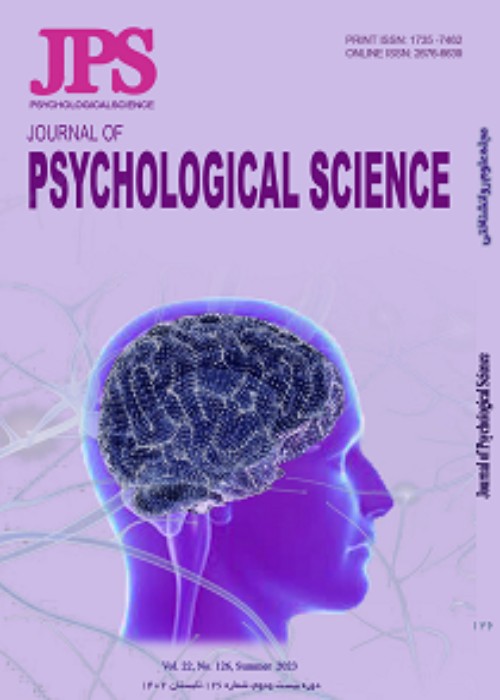The efficacy of metacognitive therapy based on detached mindfulness on meta-worry and interpersonal cognitive distortion in women with postpartum depression
Postpartum Depression (PPD) may affect mother-infant attachment and other family relationships, and may even threaten the safety and health of mother, infant and other children. Despite the relative efficacy of most cognitive therapy methods in controlling or reducing the symptoms of PPD, their application has faced many shortcomings due to a lack of explanation of the main cause of the disorder and deficiency in providing appropriate treatment strategies. Also, less research has been done on the effect of detached mindfulness-based metacognitive therapy on meta-worry, cognitive distortion, and other symptoms of PPD.
The present study aimed to determine the efficacy of metacognitive therapy based on detached mindfulness on reducing meta-worry and interpersonal cognitive distortion in women with PPD.
This research was conducted by quasi-experimental method using a two-group pretest-posttest design. The statistical population of the study was all women referred to Golestan Urban Health Center in Ardabil City from 2018 to 2019. Sampling method was convenience sampling. Using Beck Depression Inventory (BDI) (1996) and the Edinburgh Postnatal Depression Scale (EPDS) (1987), 40 people were selected (20 in experimental group and 20 in control group). Then, for the experimental group, the protocol of detached mindfulness-based metacognitive therapy was performed during 8 sessions in Golestan Urban Health Center in Ardabil City, and the results were analyzed based on meta-worry and interpersonal cognitive distortion scales by analysis of covariance (ANCOVA).
The results showed that in the experimental group the average posttest scores of meta-worry and interpersonal cognitive distortion were significantly different from the control group. In other words, after therapeutic intervention meta-worry (F = 317.62; P = 0.001 <0.05) and interpersonal cognitive distortion (F = 331.39; P = 0.001 <0.05) meaningfully decreased in the experimental group.
The results of this study indicated that detached mindfulness-based metacognitive therapy, by improving the thinking process, identifying negative metacognitive and correcting beliefs, and providing appropriate cognitive responses, is an effective therapeutic approach in treating PPD symptoms and reducing meta-worry and interpersonal cognitive distortion.
- حق عضویت دریافتی صرف حمایت از نشریات عضو و نگهداری، تکمیل و توسعه مگیران میشود.
- پرداخت حق اشتراک و دانلود مقالات اجازه بازنشر آن در سایر رسانههای چاپی و دیجیتال را به کاربر نمیدهد.




